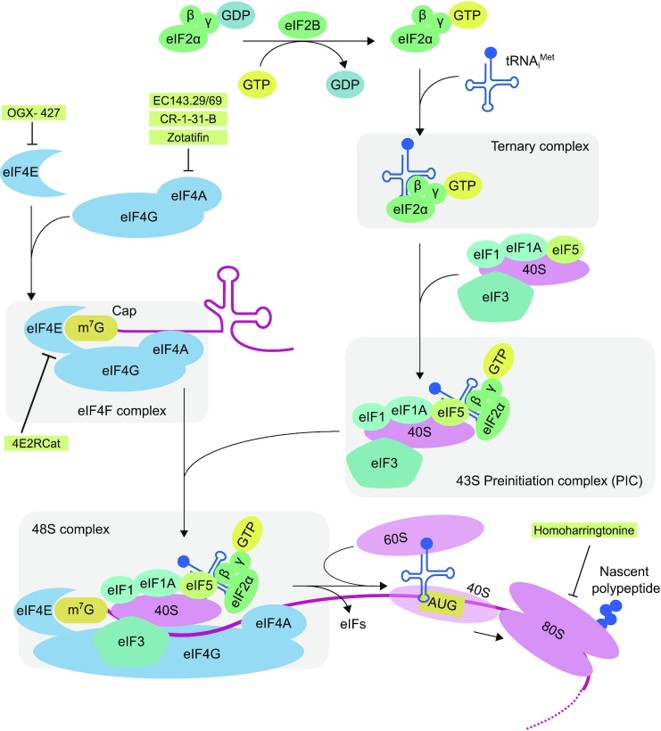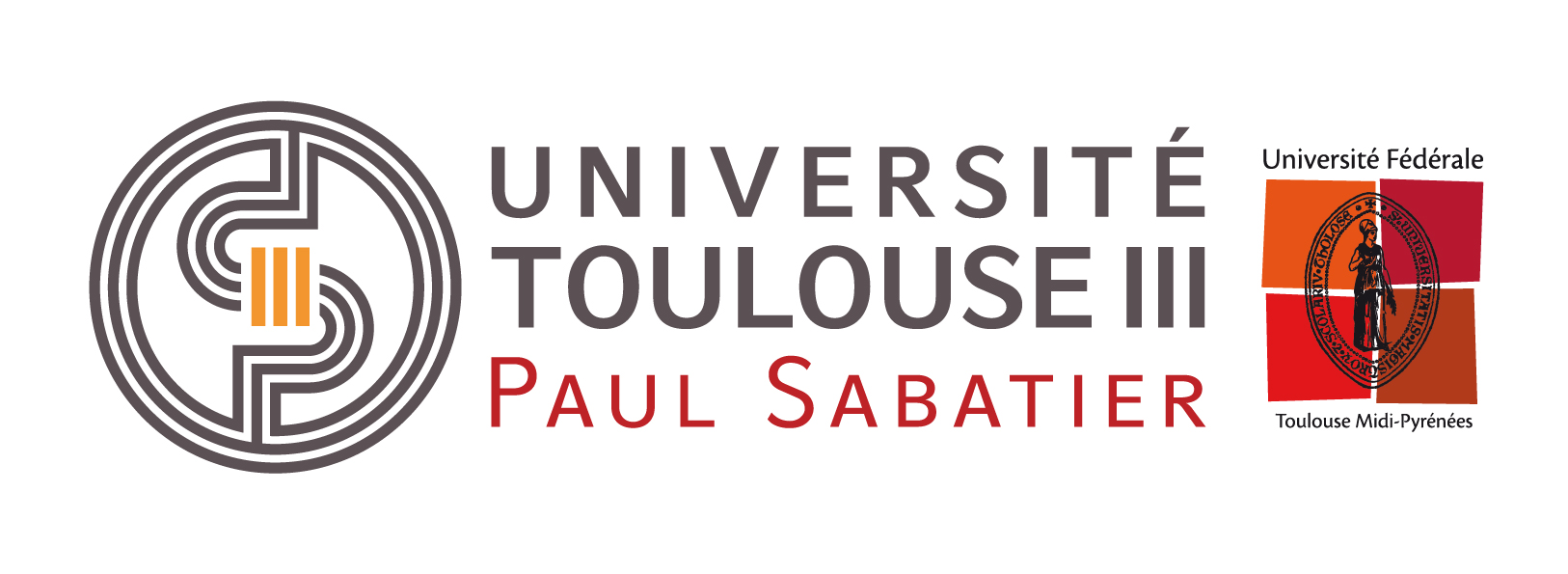Deregulation of protein synthesis in pancreatic cancer
Pancreatic Cancer
mRNA translation
Integrated stress Response (ISR)
protein synthesis
Yvan Martineau, Team MICROPANC – Microenvironnement and Therapeutic Resistance in Pancreatic Neoplasms
During the last decade, the deregulation of the protein synthesis process in pancreatic cancer has been widely documented. This process impacts on the initiation, development and follow-up of pancreatic cancer. This review of the literature summarizes the different protein synthesis abnormalities described in pancreatic cancer, which lead to its resistance and adaptation to treatment. We also discuss the latest drug discoveries that offer a glimmer of hope.

Figure 1. Overview of the translation initiation mechanism. The 5′ cap-dependent translation implies recognition of the START codon by a ribosome carrying the initiator methionyl-tRNA (Met-tRNAi). First, the ternary complex (TC) is formed by the association between Met-tRNAi and eIF2. The main role of the TC is the transfer of Met-tRNAi to the 40S ribosomal subunit associated with numerous initiation factors (eIF1, eIF1A, eIF5 and eIF3). The 43 pre-initiation complex (43S PIC) is formed by the association of the TC with the 40S ribosome, through the interaction between eIF2β and eIF5. The eIF4F complex, composed of the cap-binding protein eIF4E, eIF4G and the RNA helicase eIF4A, is assembled at the cap structure. The eIF4F complex recruits the 43S PIC through the interaction between eIF3 and eIF4G to constitute the 48S complex. This complex scans the mRNA from 5′ to 3′ until the START codon, then eIF5 hydrolyzes GTP-bound eIF2γ to dissociate the 48S complex and allow association of the 60S with the 40S in order to form the 80S ribosomal subunit. Therapeutic agents under ongoing investigation, targeting this machinery, are noted in green boxes.
Discover the published article
NAR Cancer. 2022 Oct 28;4(4):zcac031.doi: 10.1093/narcan/zcac031. eCollection 2022 Dec.
Translational alterations in pancreatic cancer: a central role for the integrated stress response
Sauyeun Shin, Jacobo Solorzano, Mehdi Liauzun, Stéphane Pyronnet, Corinne Bousquet, Yvan Martineau
Collaborations and acknowledgements
This work was supported by LNCC (Labellisation Ligue Nationale Contre le Cancer) and the French National Institute of Cancer [INCA_16076 to Y.M., 2018–080 and 2018–082 to C.B.]. S.S. and M.L. were recipients of a fellowship from the LNCC and J.S. from Fondation Toulouse Cancer Sante/Region Occitanie. J.S. has been partially supported through the grant EUR CARe [ANR-18-EURE-0003] in the framework of the Programme des Investissements d’Avenir.

Toulouse Cancer Research Center (Oncopole)
Toulouse – FR
Contact us
+33 5 82 74 15 75
Want to join
the CRCT team ?




